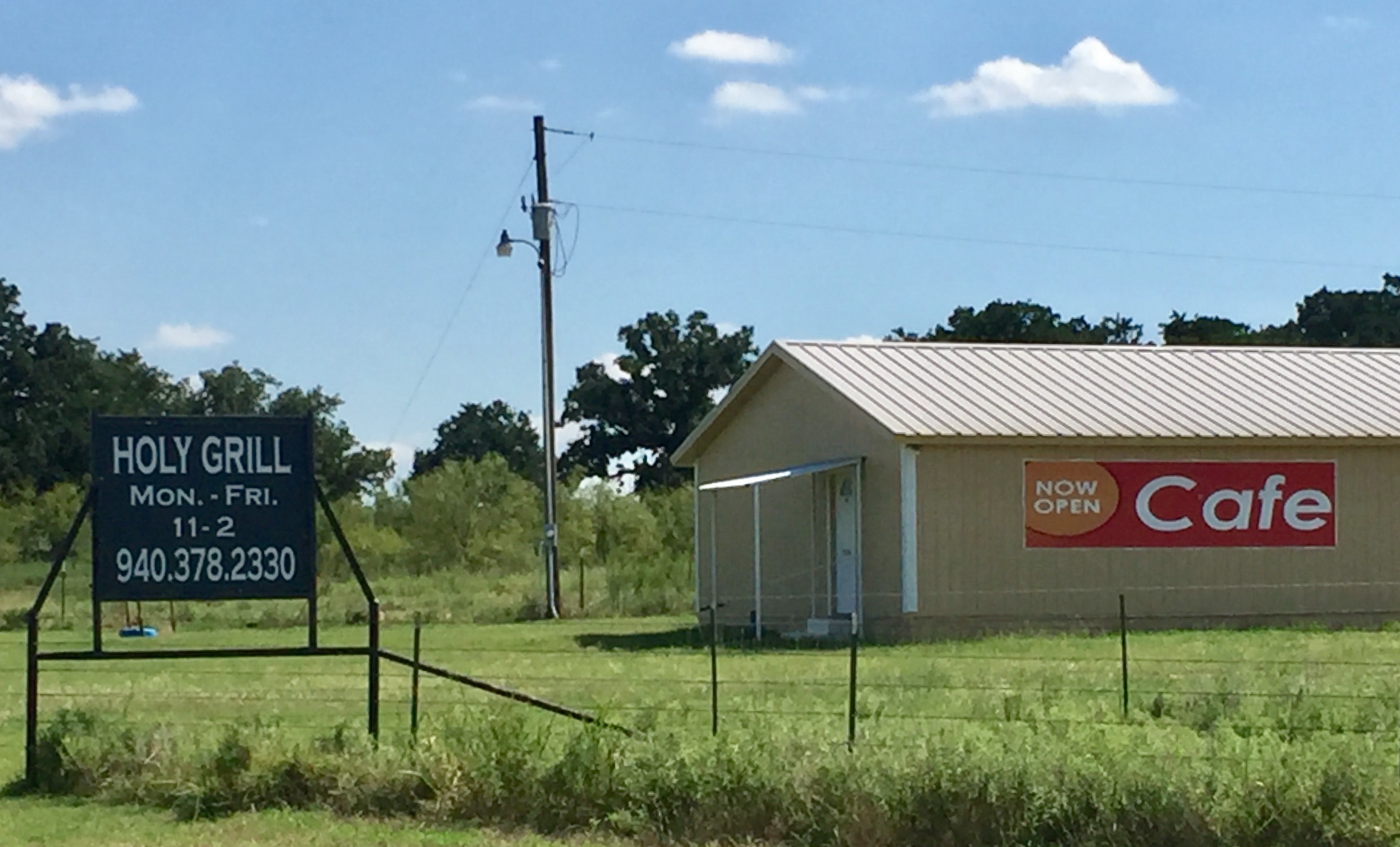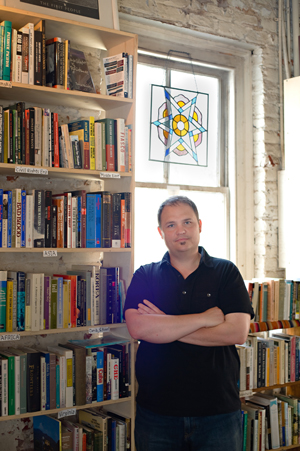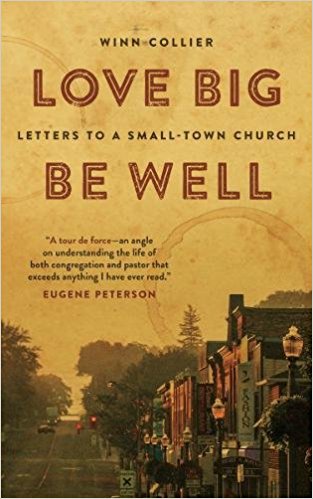 In the first part of my interview with Winn Collier, pastor of All Souls Charlottesville and author of Love Big. Be Well.: Letters to a Small-Town Church, we talked about his decision to set his novel in a small town. We also talked about the use of letters as a way to tell the story of a pastor and his congregation. In this segment we dig deeper into why small congregations should treasure a particular kind of inefficiency. Click on the title link for my review of the book.
In the first part of my interview with Winn Collier, pastor of All Souls Charlottesville and author of Love Big. Be Well.: Letters to a Small-Town Church, we talked about his decision to set his novel in a small town. We also talked about the use of letters as a way to tell the story of a pastor and his congregation. In this segment we dig deeper into why small congregations should treasure a particular kind of inefficiency. Click on the title link for my review of the book.
I know you lived in Waco, Texas. Did you grow up there?
From sixth grade on, yes.
Before Chip and Joanna Gaines turned it into what it is today right?
Exactly. Now it is the Magnolia Mecca.
Yes, and with the new Baylor football stadium.
Oh, it’s massive. Yeah, it’s changed drastically since when I was there.

So, when you were there it was probably more of a small city. You’re living in a small city now. How much is Charlottesville or the places you’ve lived before in the place you imagine in the new book?
[The fictional town of Granby is] definitely smaller than any place I’ve lived so in that sense its feels very different but it feels like a lot of places that I’ve maybe visited. It’s probably more like places that I drive through and maybe towns that I’ve visited when we lived in Colorado. One of my favorite authors is Kent Haruf and all of his stories are set in one fictional town in Colorado, and there’s just something I think that I love about that. So it’s just where I go.
Where I live now on the Eastern Shore is very rural and I’m working with a whole lot of churches that feel like the kind of church you’re imagining in the book. Confronting a narrative of despair and decline is a huge challenge. Do you see new opportunities even in places like that?
Absolutely! I absolutely do. In fact I think in some ways these small, rural churches are actually on the front lines of what’s happening because it’s a place where we are grappling with the most human realities that we are struggling with. Sometimes in massive churches with massive resources, that are run in many ways like a Fortune 500 corporation, they are actually more disconnected from some of the harsher struggles that our communities are facing.
I’m not trying to paint one as bad and the other one as good. I think these large churches also are able to amass energy and resources towards large questions and they are able to ignite some kind of movement and responses to things. Sometimes it’s really helpful and sometimes it’s very short-sighted.
In some of our larger expressions of faith it’s just very difficult to keep the human at the center and if the incarnation tells us anything is that this joining of humanity with God is at the very heart of what God’s doing in the world. To be large and efficient you have to, in some ways, reduce the inefficiency of what comes from human relationships.
In the smaller churches that’s not even a question. Everything is inefficient. And that’s seen typically as a real negative and I want to say: Let’s flip that story because it’s not. It has its own struggles. It has its own questions about sustainability and we have to be creative about those sorts of things, but there are things a small church is attuned to and can respond to and be for people that a large church absolutely never can.
“To be large and efficient you have to, in some ways, reduce the inefficiency of what comes from human relationships. In the smaller churches that’s not even a question. Everything is inefficient. And that’s seen typically as a real negative and I want to say: Let’s flip that story because it’s not.”
In some ways, lots of small churches spread all over the vastness of our country is actually our hope way more than a growing handful of massive churches. So I think that there’s actually a lot of hope there and in lots of churches where people are.
 What I find most encouraging and interesting and hopeful is those small churches that really are reflections of their community. They really are a part of the fabric of the life of that community. They’re living out a parish model that most of the rest of us are doing our best to try to fabricate and so were left at the end of the day doing the best we can. We do have to do the best we can but doing the best we can is trying to fabricate something. That’s why we have things such as small group ministry. It’s important because where else are you going to get connected? But we have to be honest and say were having to do this because we are so uprooted and because our lives are no longer bound together.
What I find most encouraging and interesting and hopeful is those small churches that really are reflections of their community. They really are a part of the fabric of the life of that community. They’re living out a parish model that most of the rest of us are doing our best to try to fabricate and so were left at the end of the day doing the best we can. We do have to do the best we can but doing the best we can is trying to fabricate something. That’s why we have things such as small group ministry. It’s important because where else are you going to get connected? But we have to be honest and say were having to do this because we are so uprooted and because our lives are no longer bound together.
Yeah.
We’re no longer working in a couple square blocks or neighboring our neighbors farm, and were no longer going to one another’s place when it’s time to harvest, pulling up tobacco or corn or what have you. We’re no longer showing up at the same diner at noon for lunch as three or four of our other friends and we’re going to see them two or three times a week because there’s only one or two places to eat in town. We have three churches to choose from and it’s one of the three and five times a year those churches are going to get together and do pancake suppers.
That kind of life that was so common fifty years ago, for many of us, because we’ve moved to urban centers, has been obliterated and so now we’re trying to find ways to get people in proximity. That’s always, to some degree, going to feel orchestrated because it is. In small churches all they have is each other and the storyline they’re being told is that’s the problem, and I think it’s a gift.
Winn Collier is the pastor of All Souls Charlottesville. His blog can be found at winncollier.com.
The final segment of this interview, ‘God, love, God, love,’ can be found here.

One response to “How to Make Your Church Inefficient: The Winn Collier interview continues (2 of 3)”
[…] Winn’s blog is at winncollier.com. The second segment of this interview, How to Make Your Church Inefficient, can be found here. […]
LikeLike